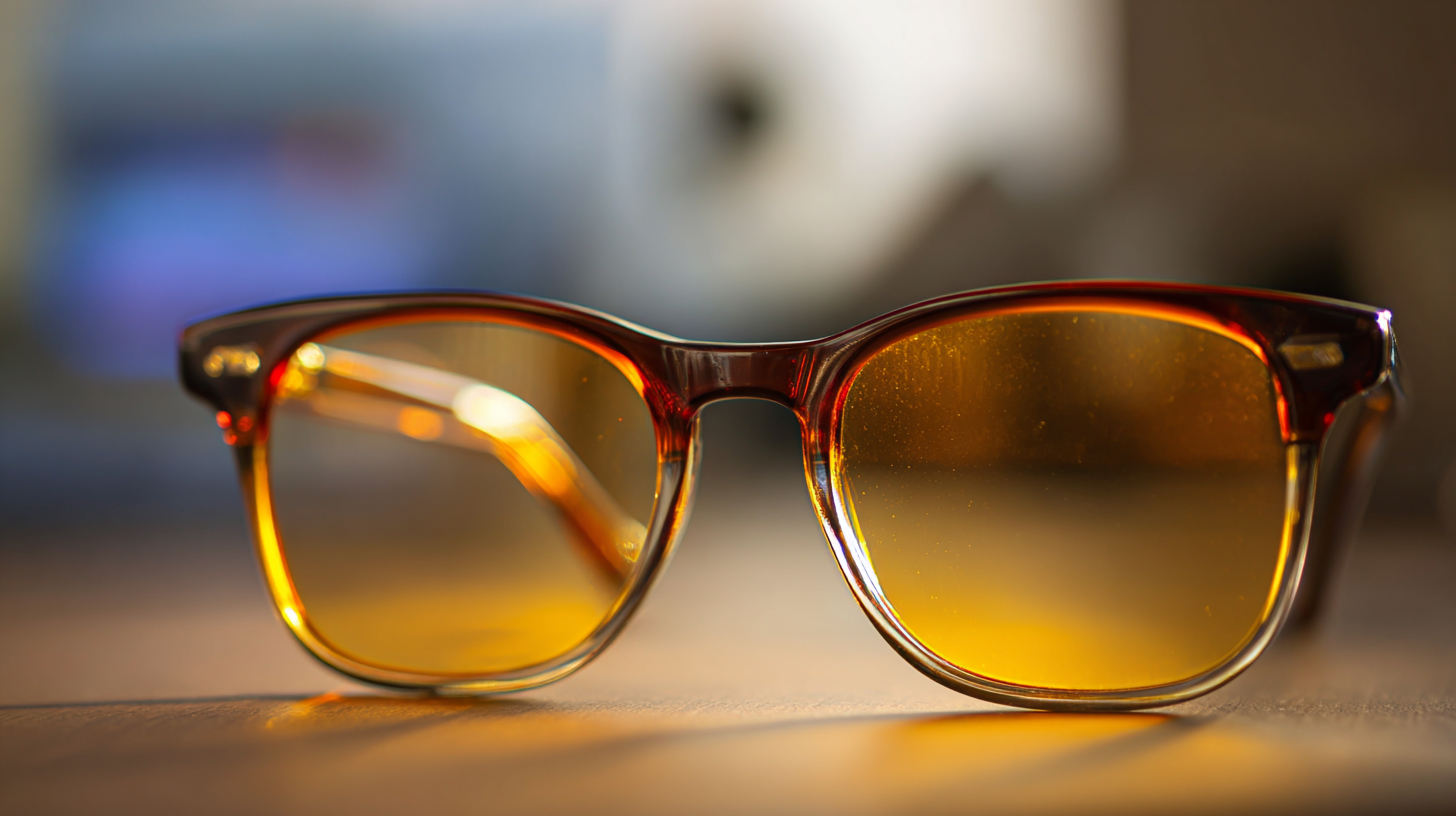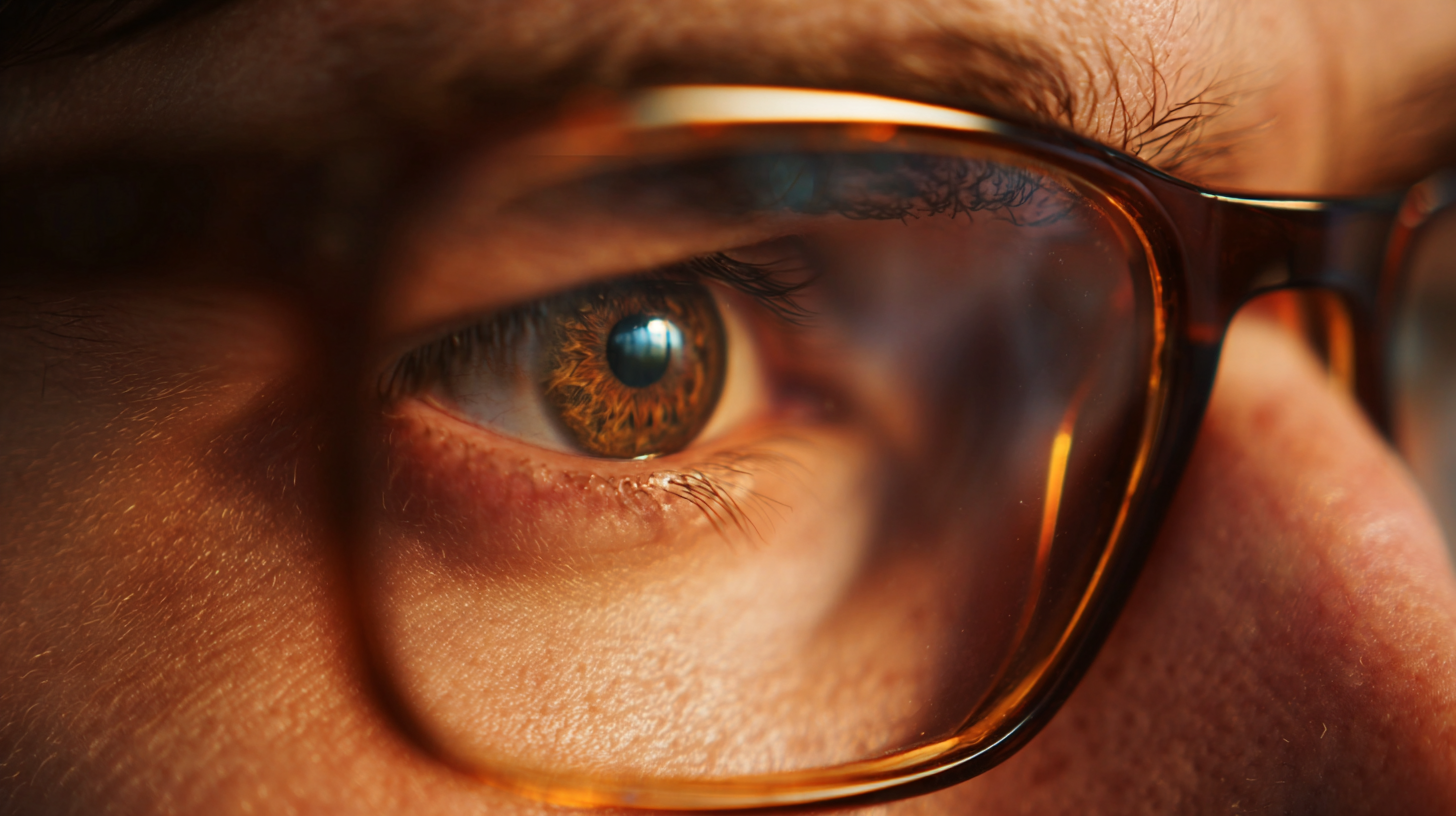 In an increasingly digital world, our eyes are continuously exposed to blue light emitted from screens, which can lead to various visual discomforts and long-term complications. A report from the Vision Council highlights that nearly 70% of American adults experience symptoms of digital eye strain, underscoring the urgent need for effective solutions. One such solution that has gained popularity is
Amber Lens Glasses, designed specifically to filter out harmful blue light and enhance visual wellbeing.
In an increasingly digital world, our eyes are continuously exposed to blue light emitted from screens, which can lead to various visual discomforts and long-term complications. A report from the Vision Council highlights that nearly 70% of American adults experience symptoms of digital eye strain, underscoring the urgent need for effective solutions. One such solution that has gained popularity is
Amber Lens Glasses, designed specifically to filter out harmful blue light and enhance visual wellbeing.
Amber Lens Glasses not only reduce glare but also improve contrast and color perception, making it easier to navigate our screen-dominated lives. According to a study published in the Journal of Optometry, individuals who wore these specialized glasses reported a 50% reduction in eye strain symptoms after prolonged screen use. This statistic reinforces the effectiveness of Amber Lens Glasses as a vital tool for protecting our eyesight amidst rising digital usage. As we unlock the science behind these innovative lenses, it becomes clear that incorporating them into our daily routine could profoundly benefit our visual health and overall quality of life.
Amber lens glasses have gained popularity as a potential solution for alleviating digital eye strain, a common issue in today's screen-dominated world. These glasses are designed to filter out blue light emitted from digital devices, which is known to contribute to eye fatigue, discomfort, and disrupted sleep patterns. By wearing amber lens glasses while using computers, tablets, or smartphones, individuals can experience reduced glare and improved contrast, leading to a more comfortable viewing experience.
In addition to minimizing digital eye strain, amber lens glasses offer several other benefits for visual wellbeing. They can enhance color perception and depth of field, providing clearer and sharper images, especially in low-light conditions. This is particularly advantageous for individuals who spend long hours in front of screens. Moreover, incorporating these glasses into daily routines can help promote better sleep hygiene by mitigating the blue light exposure that often occurs before bedtime, thus contributing to overall health and wellness.
This chart illustrates the potential benefits of using amber lens glasses for individuals who experience digital eye strain. Each bar represents the percentage of users who reported relief from specific symptoms after using amber lens glasses for a month.
Amber lens technology has gained attention in recent years for its potential to enhance visual wellbeing by filtering specific types of light, particularly harmful blue light. Scientific studies indicate that prolonged exposure to blue light, especially from digital screens, can contribute to digital eye strain, migraines, and disrupted sleep patterns. A study conducted by the American Optometric Association reveals that nearly 50% of adults experience symptoms of digital eye strain, highlighting the critical need for effective solutions.
Recent innovations in amber lens technology are specifically designed to combat these issues. New light-filtering glasses have been developed, utilizing advanced polymer materials that not only reduce glare but also block out up to 98% of blue light, according to industry reports. This technology is particularly beneficial for individuals who regularly use screens for work or gaming, mitigating eye fatigue and improving comfort. As more people turn to digital devices for work and leisure, the role of amber lens glasses in promoting visual health is becoming increasingly significant, offering a practical approach to a widespread problem.
| Feature | Benefit | Scientific Basis | Potential Users |
|---|---|---|---|
| Blue Light Blocking | Reduces eye strain and fatigue | Filters out harmful blue light wavelengths | Office workers, gamers, and students |
| Enhanced Contrast | Improved visibility in low-light conditions | Increases the contrast between colors and shades | Nighttime drivers and outdoor enthusiasts |
| Reduced Glare | Less discomfort from bright lights | Absorbs and diffuses excess light | Sports players and people driving in bright conditions |
| Improved Mood | May enhance overall well-being | Influences the production of serotonin in the brain | Individuals dealing with seasonal affective disorder |
| Protection from UV Rays | Reduces risk of cataracts and other eye issues | Blocks harmful ultraviolet radiation | Outdoor workers and frequent travelers |
Amber lens glasses have garnered significant attention for their ability to enhance contrast and color perception, vital for visual wellbeing. According to a report by the Vision Institute, colored lenses can filter out blue light, which has been shown to cause visual fatigue and discomfort. The amber tint increases contrast by blocking the scattered blue light, allowing for sharper and clearer visual experiences, especially in low-light environments. This effect is particularly beneficial for activities such as driving at night or engaging in sports, where accurate color differentiation is crucial.
When choosing amber lens glasses, consider the lens quality and the level of UV protection they provide. Look for lenses that meet the ANSI (American National Standards Institute) safety standards for optical clarity. Additionally, ensure they have anti-reflective coatings, which can further reduce glare and improve visual clarity.
Tip: For those who spend extended periods in front of screens, incorporating amber lens glasses can help reduce eye strain. A study published in the Journal of Ophthalmology indicated that individuals who wore blue light-filtering glasses reported a 50% reduction in discomfort and an enhancement in focus during prolonged computer use.
Amber lens glasses have gained popularity for their potential to enhance visual wellbeing, particularly in our digital age filled with screens. Integrating these glasses into daily life can significantly improve comfort and reduce eye strain. According to a report by the American Optometric Association, over 60% of adults experience some form of digital eye strain, highlighting the need for effective solutions.
One practical tip for incorporating amber lens glasses is to wear them during prolonged screen time. Studies suggest that blue light emitted from devices can disrupt sleep patterns and cause fatigue. By wearing amber lenses, which filter out blue light, individuals may find it easier to focus during the day and enjoy better sleep at night, thereby enhancing overall visual wellbeing.
Another tip is to keep a pair of amber lens glasses in your workspace. This is particularly beneficial during the late afternoon when natural light tends to decrease. Research indicates that reduced lighting can cause squinting and discomfort, leading to a decline in productivity. By having amber glasses readily available, you can swiftly combat fatigue while maintaining a clear and comfortable line of sight. Integrating these simple practices into your routine can pave the way for improved visual health and wellbeing.

 When choosing the right amber lens glasses for optimal visual health, it’s essential to consider several factors that can significantly enhance your experience. According to a 2021 report from the American Optometric Association, approximately 50% of digital device users experience digital eye strain, making protective eyewear increasingly important. Amber lenses are particularly effective as they filter out blue light emitted from screens, which can disrupt sleep and strain the eyes.
When choosing the right amber lens glasses for optimal visual health, it’s essential to consider several factors that can significantly enhance your experience. According to a 2021 report from the American Optometric Association, approximately 50% of digital device users experience digital eye strain, making protective eyewear increasingly important. Amber lenses are particularly effective as they filter out blue light emitted from screens, which can disrupt sleep and strain the eyes.
When selecting amber lens glasses, pay attention to the lens quality and the level of blue light filtration they provide. Look for glasses that block at least 70% of blue light to ensure adequate protection. Additionally, consider the frame style and fit, as comfort can influence how often and how long you wear them.
Tips: Always consult with an eye care professional to determine the specific needs of your eyes. It’s also beneficial to try on different styles and colors of amber lenses to see which ones suit your vision and aesthetic preferences best. Lastly, incorporating regular breaks from screen time, known as the 20-20-20 rule, can complement the benefits of wearing amber lens glasses for better visual health.

